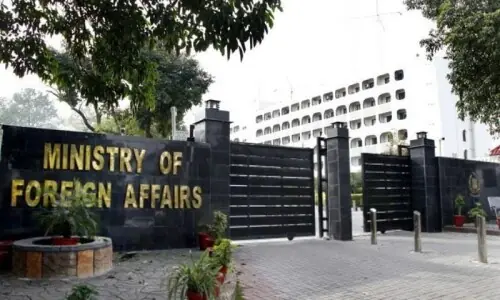THE issue of Kashmir is an emotional one and dear to most Pakistanis. This is why successive governments in this country have given sustained diplomatic and moral support to the Kashmiris in their just struggle for rights against India. However, past adventurism, especially by non-state actors and self-proclaimed jihadis, has done more harm than good to the Kashmir cause, besides tarnishing Pakistan’s global reputation. In this regard, the prime minister’s recent comments about those wanting to cross over and fight in India-held Kashmir are timely and must be welcomed. Speaking to the media in Torkham recently, Imran Khan said that anyone wishing to cross over to fight in IHK would be an enemy of Pakistan and the Kashmiris. He said that such moves would help India blame this country for infiltration. Since assuming office, the prime minister has taken other steps (such as action against JuD and its supremo Hafiz Saeed) to show the world that Pakistan is serious about not letting its soil be used by militants.
The prime minister’s words have been praised in Washington, with American officials applauding “PM Imran Khan’s unambiguous and important statement. ...” This newspaper has always called for action against militant groups, considering that Pakistan has often been accused of being soft on jihadis. Especially in times like these, with India looking to divert world attention from the atrocities it is committing in occupied Kashmir, and Afghanistan blaming Pakistan and issuing knee-jerk reactions after acts of terrorism on its soil, the state needs to send a firm message to the world that militancy of all kinds is unacceptable to this country. Where IHK is concerned, the struggle against Indian brutality is indigenous, and New Delhi must be prevented from painting this just struggle for rights in the ugly colours of terrorism.
Coming back to the Americans’ commendation of Mr Khan’s recent move, it must be added that the tone of State Department official Alice G. Wells was patronising, ‘reminding’ Pakistan “of its commitment to counter all terrorist groups”. While indeed this country needs to do more on this front for its own security, the US is hardly in a position to lecture others. It has a reprehensible tradition of arming, training and financing rival groups — from Latin American to the Middle East — to fight and overthrow ideological and geopolitical opponents. Where South Asia is concerned, the US once played the main role in building the jihadi infrastructure in Afghanistan, then, after settling scores with the USSR, it cut and ran, leaving Pakistan in the lurch. Terrorism is a transnational, complex issue and needs a cooperative approach to tackle; it should not be exploited, and certainly, those states with rather prominent skeletons in their own closets should not lecture others on the need to crack down on militancy.
Published in Dawn, September 23rd, 2019






























